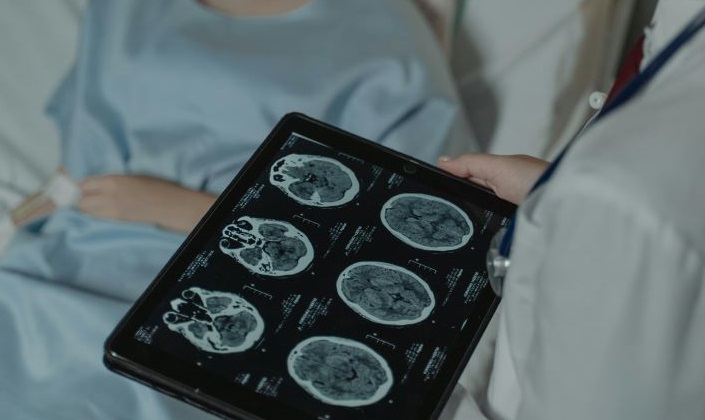Identifying psychosis risk before symptoms appear could enable clinicians to effectively tailor treatments to patients’ specific needs.
A new discovery in brain research could lead to the early detection and treatment of psychosis, potentially even before symptoms begin to appear. Researchers from the Del Monte Institute for Neuroscience at the University of Rochester have identified a biomarker that could signal psychosis onset earlier than current methods, which mainly rely on diagnostic interviews after symptoms have already been noted. This biomarker, which can be detected through MRI scans, highlights specific patterns of brain connectivity that distinguish people with psychosis from those without.
Led by Dr. Brian Keane, an assistant professor in Psychiatry, Visual Science, and Neuroscience, the research team studied MRI data from the Human Connectome Early Psychosis Project, focusing on 159 participants. Of these participants, 105 had been diagnosed with a psychotic disorder within the last five years. By analyzing brain scans, the researchers noticed a distinctive pattern in people with psychosis: weaker connectivity within sensory processing regions in the cortex, coupled with stronger connections to the thalamus, a central relay station in the brain. These differences were isolated in two key areas: the somatomotor network, which is responsible for processing bodily movement and sensory experiences, and a visual network that processes complex visual representations, such as faces and objects.
Combining connectivity data across these networks allowed the team to create what they are calling a “somatovisual biomarker” for psychosis. According to Dr. Keane, this is promising because of its significant effect size, meaning the differences it identifies are not subtle and are less likely to be influenced by other factors like antipsychotic medication use, stress, or anxiety.

Previous studies have hinted that abnormalities in sensory processing areas of the brain are prominent in individuals with schizophrenia, but this research provides a clearer focus on the specific networks involved and the exact nature of their dysconnectivity. This specificity is significant because it enables researchers to bypass some of the obstacle present in prior research. In particular, it suggests that the biomarker surfaces from underlying structural brain differences rather than external influences or general stress factors.
The implications of this finding are considerable. Detecting psychosis risk before symptoms start could enable clinicians to classify patients into meaningful subgroups, tailoring treatments to their specific needs and potentially even preventing some cases from progressing to a full psychotic disorder. For families and individuals dealing with psychosis, a predictive biomarker could offer a transformative pathway toward targeted and timely support. This predictive capability may also benefit the broader field of psychiatry by introducing more objective diagnostic measures, which are currently limited in mental health.
The research also opens up a range of new clinical trial opportunities. Dr. Keane and his colleagues plan to investigate whether the somatovisual biomarker emerges as an early change in the brain, suggesting it could mark the start of psychotic symptoms or even appear as a precursor. By understanding the timing and development of these connectivity patterns, researchers hope to refine their understanding of how psychosis develops.
If further research supports the effectiveness and reliability of the somatovisual biomarker, its integration into practice could offer an effective way to address signs of future psychosis, leading to more individualized treatment plans and allowing for preventative strategies to be used before an individual’s quality of life is compromised.
Sources:
New brain biomarker could enable early diagnosis of psychosis


Join the conversation!